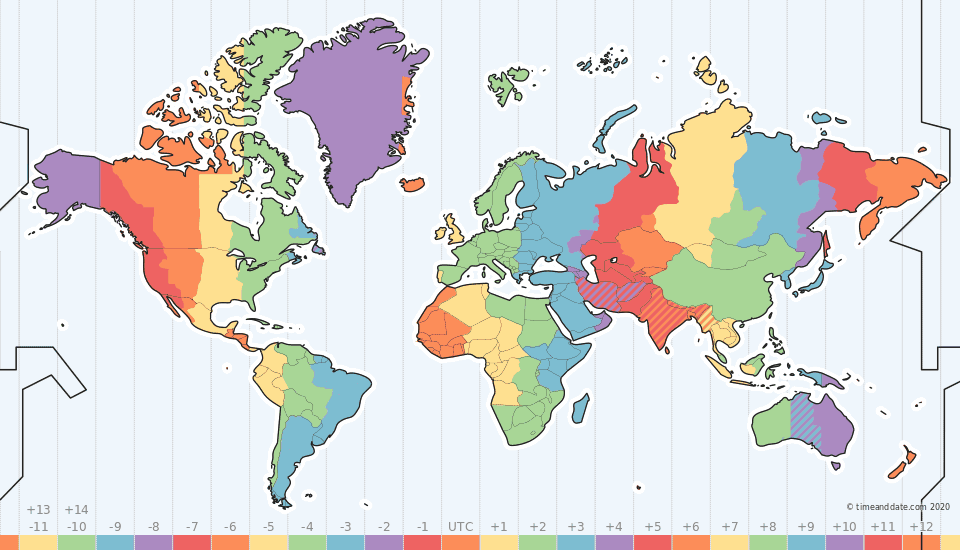On Sunday, the Nigerian social media space suddenly went sizzling with some noise of mortifying fight between two Nigerian federal agencies.
It started when Sahara Reporters made a report alleging that the Minister of Communication and Digital Economy, Dr. Isa Pantimi, ordered gunmen to chase the staff of Nigerians in Diaspora Commission (NIDCOM) out of office. The report was based on the complaint of the Director General of the Commission, Hon. Abike Dabiri-Erewa, who said that the NIDCOM does no longer have a space to work from.
She said: “In one year, we don’t have an office. The office we got was given to us by NCC but we were actually driven away by the honourable minister of communication and digital economy, Mr. Isa Pantami, within two days, they drove us out with guns and what happened? The place was given to us by NCC.
“You know we all help each other, NCC as an agency of government, said there is a place you can use to settle in, and just as we settled in, I was in Ethiopia when I got a call. I thought that it was a joke. I came back from Ethiopia on Thursday, this happened on Tuesday, by Friday when I went to the office, guns, armed men had taken over the place. I thought it was a joke, but here is the thing, I’m a government employee, so is he. It’s a government issue.”
An hour after the news went out, the Minister of Communication, Dr. Pantami responded, calling the story a lie. He fiercely refuted sending armed men the way of the NIDCOM staff.
In a quick reaction, Sahara Reporters shared a video where the DG of Diaspora Commission was recorded confirming the story. Again, Dr. Pantami came tenaciously refuting it. He called it “a fat lie,” adding that the Nigerian Communication Commission has “faulted her lies on social media.”
That ignited an inferno of argument. The response that came from the NIDCOM DG reveals underlying issues in the fracas. It was a combination of mockery and slamming that only added embers to the controversy. She said the Minister of Communication is a notorious misogynist whose “disrespect for women is legendary.”
To prove how truthful her side of the story is; she shared the video of the incident which shows members of the Diaspora Commission being asked to vacate the office of the Nigeria Communication Commission (NCC).
At this point, there had been enormous efforts by many who were attracted by the commotion to quell it.
“Oya, Abike, tell him sorry. Pantami, you too, tell her sorry. Oya you both should go outside and play. Don’t fight again. Twitter has settled your dispute,” Chinedu Okeke wrote on Twitter.
While a horde among those who the noise of the altercation attracted chose a side to support in the unfortunate tweet-fight, the Nigerian Communication Commission threw in the towel with a statement that explains how it all started and why the principal officers of the government decided to settle their grudge with a bout in the public.
In a statement titled: Diaspora Commission Not Sent Packing from Digital Economy Complex, signed by Dr. Henry Nkemadu, the NCC’s director of public affairs, the Commission said the decision stopping the staff of NiDCOM from using its complex was only a security measure.
“The Board and Management of the NCC took a decision to ensure that every activity in the building was in line with the Federal Government’s digital agenda.
“Incidentally, after the offer of the office spaces to the Diaspora Commission, the Director General (DG), Mrs. Abike Dabiri-Erewa had not visited the Complex to take possession of any of the offices and also the Commission had not started using any of these spaces as offices.
“As is usual in ensuring security and accountability before, during and after presidential visits, the building had to be cleared to allow for only known and identifiable persons to have access within the Complex.
“Therefore the Honourable Minister of the Federal Ministry of Communications and Digital Economy, Dr. Isa Ali Ibrahim Pantami could not have sent armed men to drive the staff of the Diaspora Commission out of the Communications and Digital Economy Complex,” the statement said partly.
The Diaspora Commission responded with its own statement that refutes the claims of the NCC. It said the Commission issued a 48 hours marching order to its staff.
“On the 9th of February, the staff were given one week by the Hon. Minister of Communications and Digital Economy, Dr. Ali Pantami, to pack out but within 48 hours of the said quit notice, they were forcefully evicted by security operatives attached to the complex on the orders of the Minister on February 11,” the statement said.
While there is no clear winner yet, the reaction of Nigerians who watched interestingly as the quarrel escalated has been of disappointment, reprimand and support for the party of their choice.
“Abike is playing the gender card when she should hold her heads high like Oyo Ita who challenged Abba Kyari. This rudderless government that Abike is defending everyday has come to biter her. Pantami has never been an Honest person. His antecedents are here for all to see,” a Twitter user wrote.
Others think that the office of the Diaspora Commission is duplicated and therefore should not raise alarms over office space to the point of embarrassing public fights with the minister of communications.
“The commission (NIDCOM) is a duplication of the functions of the MFA and our diplomatic missions,” Mark Amaza said. “Nonetheless, it’s embarrassing to see this kind of public spat between top govt. officials.”
While it is clearly a show of shame, many believe that two federal agencies fighting on social media is also a result of poor leadership.
“That’s what happens when the president does not even know what is happening in his administration. She resorted to Twitter because the president is so far aloof. That was the same thing that happened between the former madam Oyo and Abba Kyari,” a Twitter user wrote.
It is believed that the federal government acted irresponsibly by creating an agency like the NIDCOM, (that has been proactive to the plights of Nigerians in Diaspora), without provision for office space.
The full statement of NCC.
Diaspora Commission Not Sent Packing from Digital Economy Complex, Says NCC.
The attention of the Nigerian Communications Commission (NCC) has been drawn to a video
making the rounds on social media alleging that the Nigerians in Diaspora Commission
(NiDCOM) was ignominiously thrown out of the NCC building. It is, therefore, important that the general public is acquiesced with what really transpired with regard to the incident leading to the evacuation of the Diaspora Commission from the NCC building.
Following the completion of the NCC building at Mbora, Abuja designated as NCC Annex and the
acute shortage of accommodation space for the staff of the Commission in the NCC Head Office
at Maitama, Abuja, the Board of the Commission directed the decongestion of the Head Office
Building.
Some of the Departments of the NCC had started moving to the new Office Complex of Five (5) Floors when discussions were held between the NCC and the Diaspora Commission to enable the Diaspora Commission also to utilise any free offices within the Complex. The fifth floor allocated to them had to be used to accommodate other Departments from the NCC Headquarters to ease the congestion.
NCC’s offer to house NiDCOM was predicated on the long held position of the NCC that agencies of Government will achieve more through strategic collaboration, partnership, synergy and sharing to the extent allowed by relevant laws. During this period, the NCC secured approval for the Commissioning of the Office Complex by the President, His Excellency Muhammadu Buhari and the launching of four important projects of the NCC and the renamed Federal Ministry of Communications and Digital Economy (FMC&DE).
The projects include the launching and unveiling of the Nigerian National Broadband Plan 2020 –
2025; commissioning of the Communications and Digital Economy Complex; launching of the Emergency Communications Centre and Toll-Free number 112; and the flag-off of the Digital Innovation and Entrepreneurship Training. These important projects were a culmination of extensive collaboration between NCC and the other Parastatals of the FMC&DE and fittingly the Complex was renamed the COMMUNICATIONS AND DIGITAL ECONOMY COMPLEX in tandem with the new drive of the Federal Government towards a digital economy.
The NCC has not withdrawn the offer but had hiccups arising from the preparation for the visit of
President Muhammadu Buhari to inaugurate the Communications and Digital Economy Complex
and launch other projects relating to the mandate of government. The Board and Management of the NCC took a decision to ensure that every activity in the building was in line with the Federal Government’s digital agenda.
Incidentally, after the offer of the office spaces to the Diaspora Commission, the Director General
(DG), Mrs. Abike Dabiri-Erewa had not visited the Complex to take possession of any of the
offices and also the Commission had not started using any of these spaces as offices. As is usual in ensuring security and accountability before, during and after presidential visits, the building had to be cleared to allow for only known and identifiable persons to have access within the Complex.
Therefore the Honourable Minister of the Federal Ministry of Communications and Digital
Economy, Dr. Isa Ali Ibrahim Pantami could not have sent armed men to drive the staff of the
Diaspora Commission out of the Communications and Digital Economy Complex. At this time, only NCC Staff were accredited to have access within this premises as required by the security officials. All the properties belonging to the Diaspora Commission are safely warehoused in some of the Offices in the Complex.
This is contrary to the position of the DG of NDC that the removal of her Commission from the
building was punitive. This is not the correct position and we agree with her that there are always
challenges in every human activity but the unforeseen challenges that arose in this case are not
different but require understanding of all concerned.
SIGNED:
Dr. Henry Nkemadu
Director, Public Affairs
Nigerian Communications Commission
Like this:
Like Loading...






